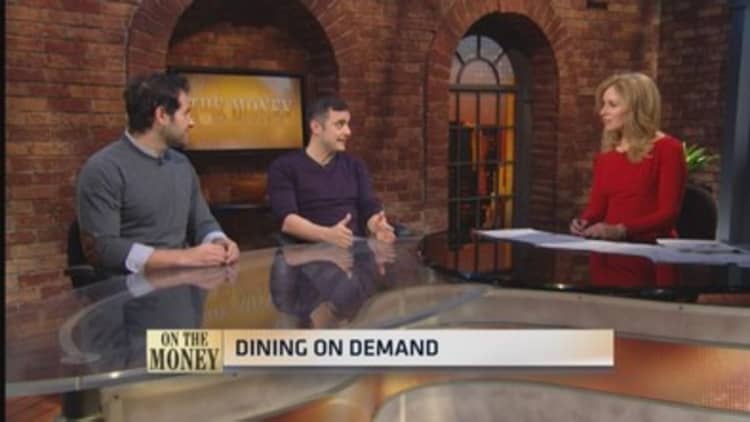
If you could buy a dinner reservation, would you?
Tables at some of the most sought-after restaurants in town are often booked close to a month in advance, making the competition to snag a reservation bordering on cutthroat. Enter Resy, the new solution that charges to get you a table at the new hot spot.
Read MoreAre single-ingredient restaurants a fad or here to stay?
"We offer great tables at the best restaurants in the city," said Ben Leventhal, co-founder of a mobile application to book prime reservations.
"It's a way to enjoy dining out," he told CNBC in an interview. Time is money and Resy helps making the ease of access to customers a more efficient process."
Before smartphones, prime seats at the finest restaurants in town often went to celebrities and luminaries, or anyone with deep pockets willing to grease the palm of the maître d' to skip the line. Now there's an app for that, too.
Reservations at some of the hottest eateries around have become a salable commodity. An increasing number of eateries are choosing to profit, simply by holding tables for anyone willing to shell out some extra cash. Resy is profiting from that wave.
Leventhal and Gary Vaynerchuk launched Resy in June 2014. The booking service app is now in 80 participating restaurants in New York and Los Angeles. For serious foodies, Resy could be described as a godsend.
Linked to a credit card, it doesn't cost anything to sign up for a Resy account and download the app. Although some reservations may not cost a penny, peak reservations are based on demand pricing. That can range anywhere from $2 per seat up to $50, and users can book tables as close to an hour before seating time for brunch and dinner.
Read MoreFast food vs. better burger: Inside the burger wars
"Prices vary day-to-day the same way a restaurant might price a chicken dinner," said Leventhal. "As a business, restaurants now have the option to use inventory scarcity to their advantage. Resy helps restaurants understand yield management."
Vaynerchuk added: "Chefs are now celebrities and restaurants are destinations. Dining is more social," and Resy is leveraging that to its advantage. Vaynerchuk is also a co-founder and the CEO of VaynerMedia, a social media brand consulting agency and grew his family's wine store sales to $45 million within a few years by launching WineLibrary.com, one of America's first wine websites.
Leventhal is the co-founder of Eater, the national food blog network now owned by Vox Media.
In a survey conducted by Hospitality Technology, results show nine out of 10 restaurants use social media as a way to reach out to potential patrons. More restaurants are hoping social media will connect them to potential patrons in the highly competitive $700 billion restaurant industry.
However, the notion of selling reservations doesn't sit well with all.
"I think it's a little stinky. You're going to charge people more money for something that's already democratically available," said famed chef and restaurateur Mario Batali in an interview with CNBC's "Squawk Box."
Still, Leventhal defended Resy's business model, which has 25,000 users and counting. Resy is expanding to other markets, including Washington, D.C., later this year.
"People value time more than anything," said Vaynerchuk, who argued that paying extra to avoid a lengthy wait for certain services is similar to other successful demand pricing businesses like Uber. In November 2014, Resy announced a partnership with the car service that will allow users to book a table and get a car to take them there.
Read MoreUber is adding a panic button for users in India
"We want Resy to provide a fair amount of value, and to be everywhere people love restaurants," said Leventhal. "We want to foster the love people have for restaurants."



